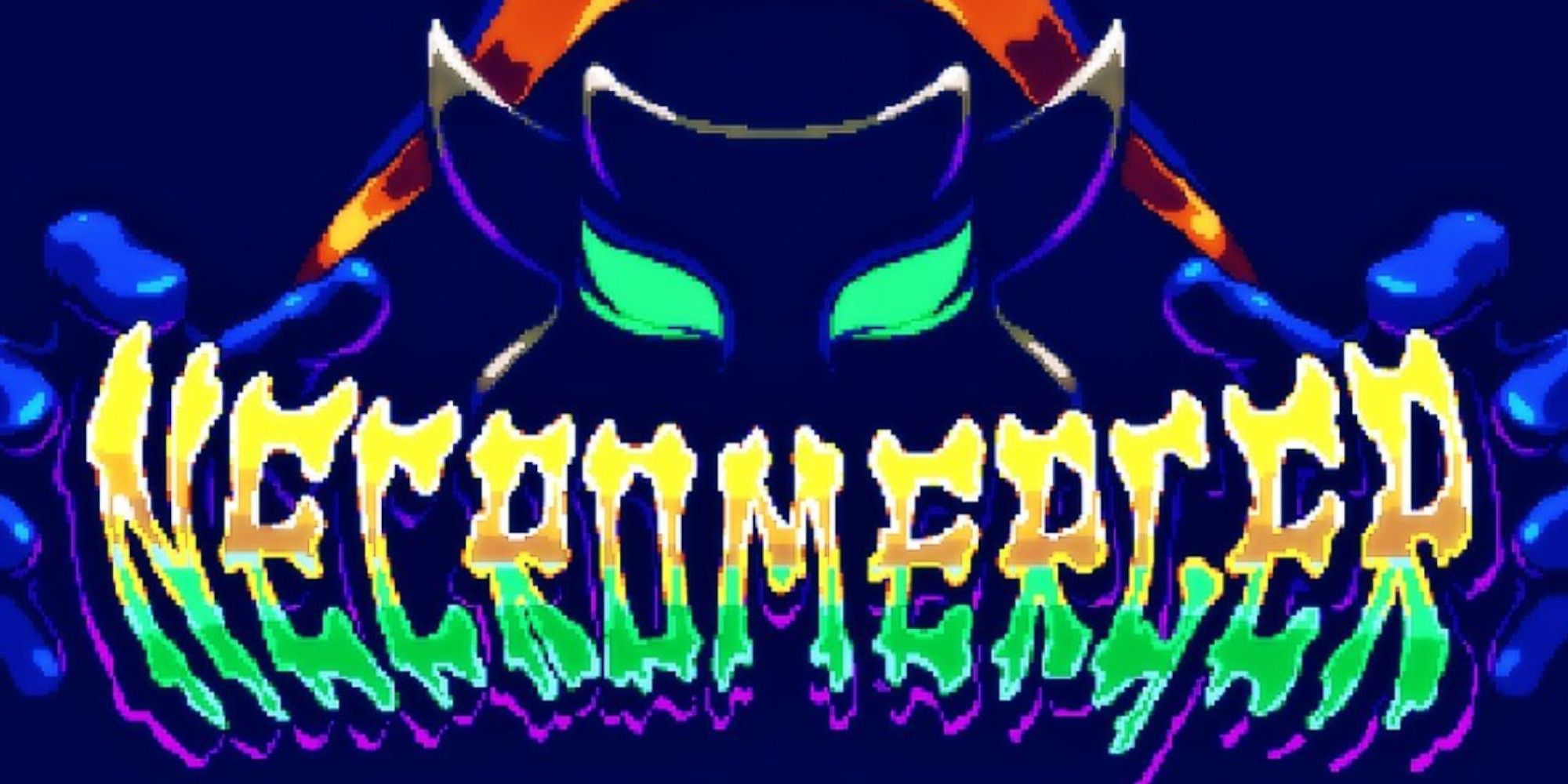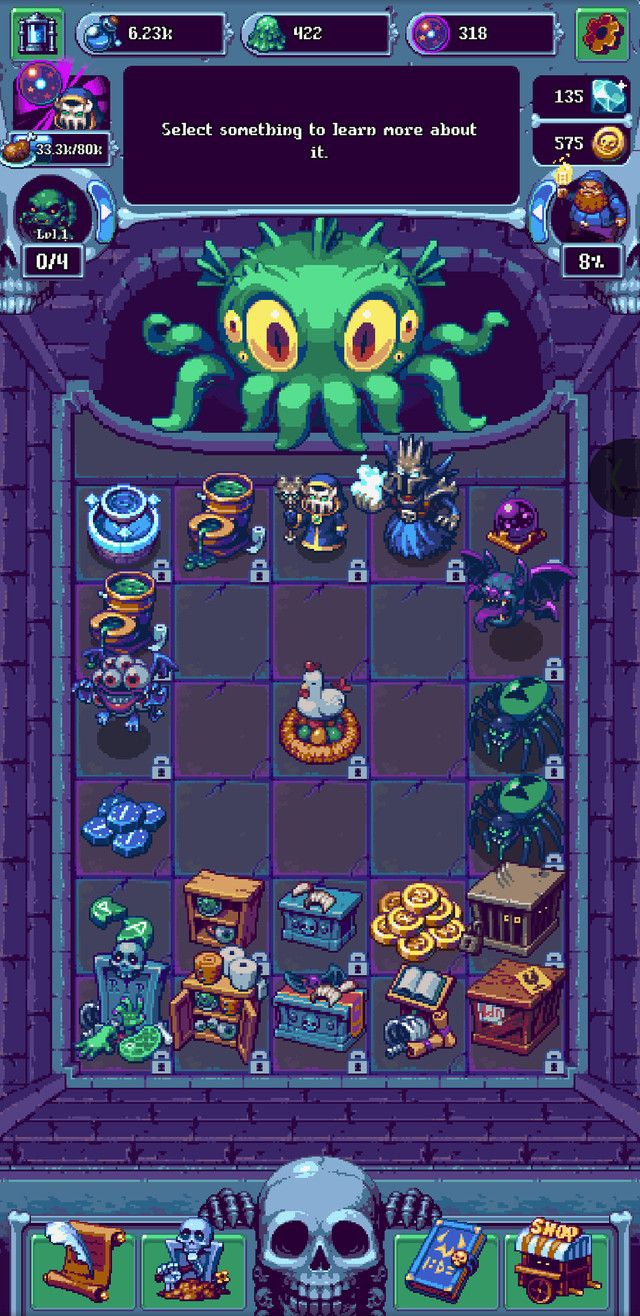Covering the mobile game market can be pretty tricky sometimes. There’s a lot of predatory garbage out there, and I often cover games that represent the platform’s worst qualities. Recent titles like Disney Mirrorverse, Diablo Immortal, and Devolver Tumble Time are all easy to criticize because they’re nothing but casinos decorated with popular mascots. The mobile market is full of developers you thought you could trust taking characters you love and jamming them into soulless, money-grubbing slot machines. Even the games I respect have some questionable monetization. Marvel Snap and Pokemon Unite do a lot to elevate and legitimize mobile, but I’ll be the first to criticize their horrifically overpriced bundles and cosmetics.
One of mobile’s biggest genres is one I’ve frequently expressed mixed feelings about. Idle games, otherwise known as clicker games, have incredibly engrossing gameplay loops that can either be used to amplify a game’s reward factor, or, as is more often the case, incentivize unhealthy, compulsive play. In the past I have struggled with compulsive gaming due to clickers and subsequently have had to impose limits on myself around how much I engage with them, and I know I’m not the only one. Mobile idle games are particularly insidious, because of the way they leverage the genre’s time-based qualities to push microtransactions. If you struggle with impulse control, these kinds of games can be especially dangerous.
There’s nothing inherently evil about idle game design, and recent examples like The Planet Crafter and Vampire Survivors demonstrate how clicker mechanics can enhance gameplay. An emerging subgenre of the idle game, called idle merge games or idle mergers, takes the basic tenets of a clicker and applies it to a more strategic and management-focused experience. There’s a handful of popular idle mergers out there, but the best example of what the genre has to offer is called NecroMerger.
Like all good idle games, NecroMerger starts simple. Positioned on a three-by-three grid is a grave and your titular NecroMerger, above them sits the Cthulhu-like Devourer. Your ultimate goal is to feed the Devourer enough food so that it grows into an unstoppable, world-eating monster, but to get there you have to build up a supply of monsters to feed it.
You can spend mana at your grave to produce a bone, and combining two bones will make a ribcage - that’s the merge part. Two rib cages make a skeleton, and every subsequent pair of skeletons you merge will produce a new skeleton one level higher. You can feed your skeletons to the Devourer, but while your skeletons live they produce the mana you need to create more bones. Managing your resources efficiently determines how quickly you’re able to progress in an idle merger. It's up to you to decide when to create, merge, and feed your monsters to the Devourer, and all those little choices add up to make a big impact on your progression.
Before I go any further, it’s important to explain that NecroMerger and its ilk have plenty of mobile game trappings. You can occasionally watch ads to open valuable treasure chests, and when you run out of mana, you can spend real money to top up. It’s important to look at any kind of monetization critically and examine how it affects, or as often the case, informs the game design, but in the few days I’ve had with NecroMerger I’ve found its monetization to be far less egregious than most mobile games. I’m often critical of games that use energy resources as a way of time-gating gameplay, and of course, incentivizing in-game spending, but what makes NecroMerger’s mana system different is that energy production, and the rate at which you accrue it, isn’t a barrier to gameplay - it is the gameplay.
I never feel like I’m staring at my energy tank waiting for the game to let me play again because how you manage your energy, or mana, is NecroMerger’s entire gameplay loop. I wish it didn’t offer a way to speed that process up through spending, but it doesn’t feel like a cash shop pretending to be a game the way so many others do. There’s no gachapan mechanics and you get enough premium currency to make a couple of purchases in the cash shop every day. Lots of mobile games put up a paywall as soon as you get invested, but I haven’t found anything like that here.
Generating mana (and later, other kinds of energy) and feeding the Devourer is how you progress, but you can’t just generate an infinite number of monsters. You’re limited by the amount of spaces on your grid, and as you unlock new monsters like zombies and spiders, you’ll quickly discover how valuable each space is. If you’re not careful, the dungeon can quickly fill up with bones, eye balls, and severed hands that can’t be merged together. Feeding a monster to the Devourer to make more room is always a double-edged sword, because it means losing the resource that monster generates, and possibly setting yourself back on long-term goals. Unlike other idle games, progress in mergers isn’t linear; sometimes you have to lose momentum to take a step forward, or slow down mana production for short-term gains. There’s a lot of hard choices to make, which is a quality idle games are not typically known for.
I’m still wary of NecroMerger because I know how easy it is to get consumed by the ceaseless number-go-up of it all. But I also find that when I’m playing it, I’m a lot more engaged than I’ve ever been with classic clicker games. The insidious thing about idle games is that you’re always playing them, which is another way of saying you’re never not playing them, and though they seem to demand so little, they actually end up demanding all of your time if you’re not careful.
Idle merge games are different because all of the important things happen when you’re actually playing. The decision making and resource management feels like part of the game, and the productivity that occurs when you’re idle feels like the reward for playing well. It may be a subtle distinction, but it makes all the difference when you’re trying to fit an idle into your life in a healthy way.


